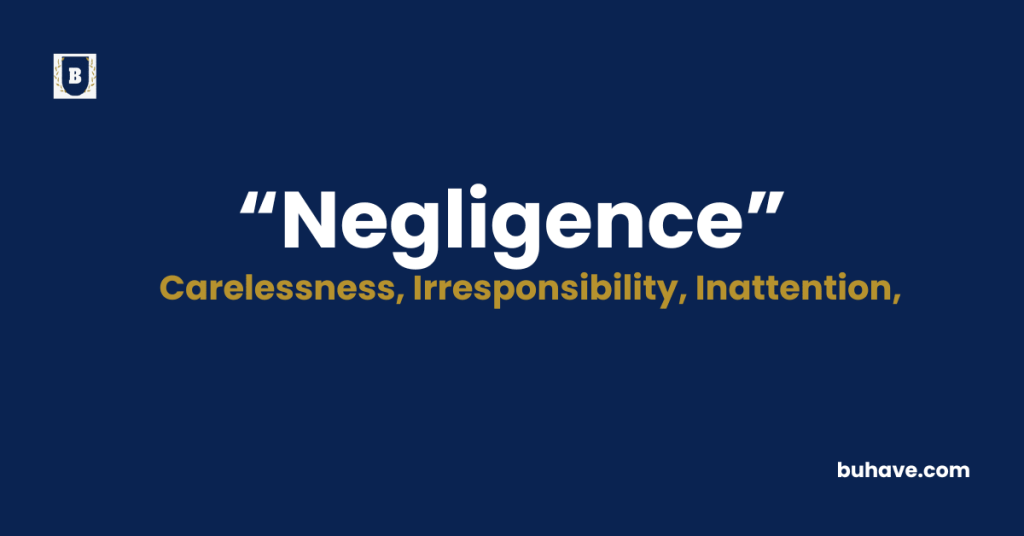The word ‘Negligence’ (Noun) refers to the failure to take proper care in doing something, often leading to damage, harm, or risk. In this guide, you’ll learn the full meaning, origin, example usage, synonyms, antonyms, and frequently asked questions to better understand and use the word ‘Negligence’.
Negligence Explained in Depth
A complete and detailed guide to the word ‘Negligence’ including meaning, definition, examples, etymology, synonyms, and antonyms.
Meanings of Negligence
‘Negligence’ means carelessness or a failure to act with the level of attention that a reasonable person would exercise in a similar situation.
Definition
‘Negligence’ is defined as the failure to take reasonable care to avoid causing injury, loss, or damage to another person or property.
Etymology
The word “Negligence” originates from the Latin verb negligere, meaning “to neglect.” It evolved through Old French negligence and Middle English, maintaining the same sense of carelessness or failure to take proper action.
Example Sentences
- The fire was caused by the company’s negligence in maintaining safety protocols.
- His negligence led to a missed deadline and an unhappy client.
- The doctor was sued for medical negligence after the incorrect treatment was given.
Negligence Synonyms
- Carelessness
- Inattention
- Disregard
- Omission
- Neglect
- Laxity
- Dereliction
- Oversight
- Forgetfulness
- Irresponsibility
Negligence Antonyms
- Care
- Attention
- Diligence
- Responsibility
- Mindfulness
- Awareness
- Vigilance
- Prudence
- Conscientiousness
- Precaution
FAQs about Negligence
Here are some frequently asked questions (FAQs) about the word “Negligence”
1. What does “negligence” actually mean?
“Negligence” refers to a failure to take proper care in doing something, resulting in avoidable harm or damage.
2. Is negligence a legal term?
Yes, in law, negligence means breaching a duty of care which causes damage or injury to another person.
3. How is negligence different from carelessness?
Carelessness is a general lack of caution, while negligence implies a breach of responsibility, often with serious consequences.

















